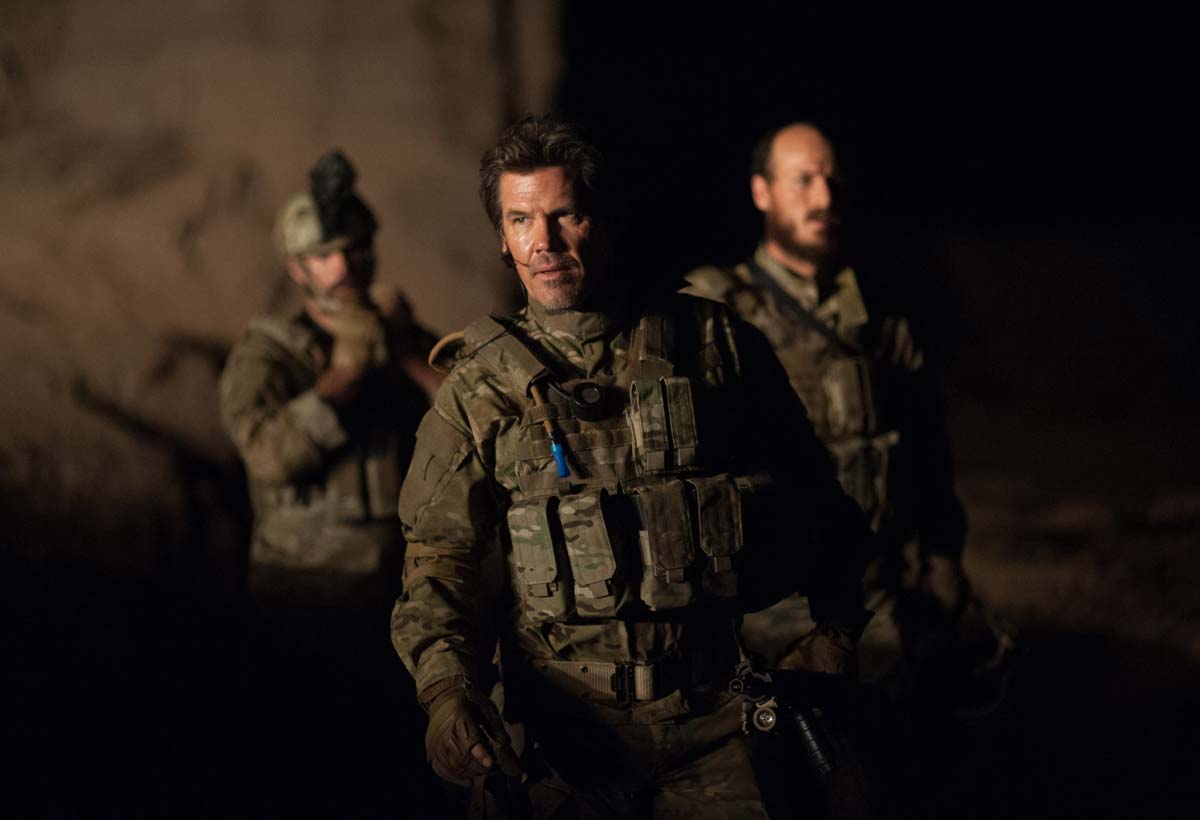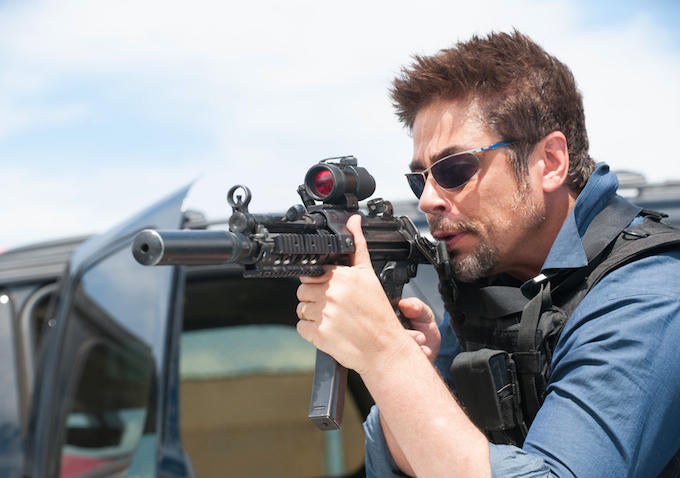Sicario, film review: Tough Emily Blunt elevates a gritty drug drama
Denis Villeneuve’s brutal thriller is one of a number of recent features and documentaries set against the backcloth of the Mexican drug wars.

Welcome to Narcoland. Denis Villeneuve’s brutal thriller is one of a number of recent features and documentaries set against the backcloth of the Mexican drug wars. These range from Matthew Heineman’s recent Cartel Land to Amat Escalante’s Heli and Gianfranco Rosi’s El Sicario, Room 164. Regardless of the intentions of the film-makers, such movies trade in much of the same imagery and references. There will be torture scenes, photographs of missing people and shots of mutilated corpses hanging from bridges – or, in the case of Room 164, a long and very macabre interview in which a hooded hitman describes his misdeeds in minute and grisly detail. The films all portray Mexico as a setting for violence and terror on the grandest and most grotesque scale.
Sicario isn’t really interested in the origins of the drug wars or the politics behind them. The film is both a revenge story and a study in corruption. Given the machismo that generally surrounds such movies, it was a smart move to make the main protagonist a female. FBI agent Kate Macer (Emily Blunt) is the film’s moral centre and its only idealist – the one who looks in on the behaviour of her colleagues with mounting confusion and disgust. One of the first images of Kate is of her vomiting. She has just led a kidnap response team which has bulldozed its way into a cartel house not far from Phoenix. Here, she and her team have discovered corpses in the woodwork, trussed up as if they exhibits in one of Gunther von Hagens’ macabre body exhibitions.
“Nothing will make sense to your American ears,” Kate is told when she asks how the cartels operate. “You’re asking me how a watch works.” It is put to her that if the authorities use dirty tactics, they do so because that is the only chance they have of stopping the bloodshed. They have to mirror their antagonists.
Sicario uses Mexico in the same way as old Sam Peckinpah Westerns. It’s a purgatorial place where the heroes come to wrestle with their demons. There is no proper law enforcement. “Keep an eye out for the state police, they are not always the good guys,” Kate is warned early on. The Mexicans are depicted in very superficial fashion. There are occasional interludes in which we’re shown an exhausted Mexican family man – a cop on the fringes of the drug trade – who is always being asked by his young son to take him out to play football. The other Mexican characters tend to be gun-toting traffickers or heavies, swathed in tattoos. This is the “land of wolves,” a lawless territory, which the American authorities treat not as a neighbour but a war zone.

Roger Deakins’ cinematography, with its shots of patched landscapes and graffiti-strewn cities, emphasises the idea that Mexico is an intimidating and alien place – somewhere to look at from helicopters or through binoculars but not to visit unless strictly necessary. The rumbling, ominous synth score from Jóhann Jóhannsson adds to the sense of foreboding.
Taylor Sheridan’s screenplay isn’t short on thriller movie clichés. What stops the film stalling is the full-blooded ingenuity with which the Canadian director Villeneuve stages the action set-pieces. Whether in the bravura early shoot-out during a huge traffic jam at the border, the night-vision chase sequence of the authorities pursuing their quarry through maze-like tunnels or the raids on cartel bases, the director is always able to crank up the tension.
As in Doug Liman’s sci-fi thriller Edge of Tomorrow, Blunt is faced with many gruelling situations. She is shot at, nearly throttled to death, bullied and intimidated and yet never gives up. The English-born actress is emerging as an unlikely action-movie star. She has some of the same qualities as a young Sigourney Weaver, a combination of toughness and sensitivity. In Sicario, her character is contrasted with that of Josh Brolin’s cheerily amoral special agent, Matt Graver, someone who is long since resigned to using violence and deception in pursuit of a marginally greater good. Graver will chuckle away as a Mexican gang member is tortured in front of him. His team look and dress more like vigilante members of ZZ Top than conventional law enforcement officials.
As the mysterious Alejandro, Benicio Del Toro plays a variation on the Clint Eastwood-like avenger. He is a Colombian who appears to have been a lawyer but now has very good reasons to hold a violent grudge against the Mexican drug leaders. He is laid-back, doesn’t speak much and possesses a certain charm, but still indulges in acts of extreme cruelty.
Occasionally, the jingoism here verges on the offensive. The lives of the Mexicans are cheap. The Americans only seem concerned about what is going on south of the border because the violence is moving close to them. Villeneuve barely stops to explore the stories behind the victims of the drug wars. At the same time, there is an incongruous strain of sentimentality with continual references to family relationships. Cartel leaders and cops alike are shown sitting down with their kids for meals, seemingly oblivious to the suffering and destruction that they enable to continue.

Sicario may leave an unpleasant taste but it is a slick, accomplished thriller. Villeneuve invokes memories of William Friedkin and Michael Mann movies both in the way he handles action and his attention to character. He is portraying a world turned upside down. As an opening intreat tells us, “Sicario” isn’t just another word for hitman. It refers to the killers in ancient times who used to hunt down invading Roman soldiers in Jerusalem. The central irony is that the lines between the cartels and their American antagonists grow more and more blurred. The most vicious killers we see here actually come from north of the border.
Sicario (15)
Denis Villeneuve, 121 mins Starring: Emily Blunt, Benicio Del Toro, Josh Brolin, Jon Bernthal, Victor Garber
Join our commenting forum
Join thought-provoking conversations, follow other Independent readers and see their replies
Comments
Bookmark popover
Removed from bookmarks